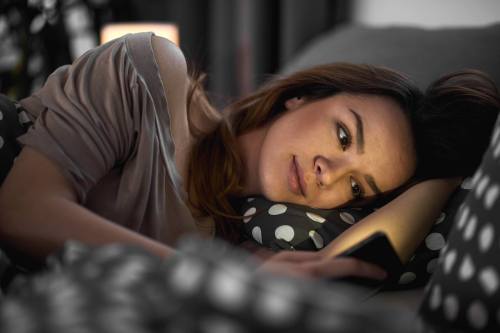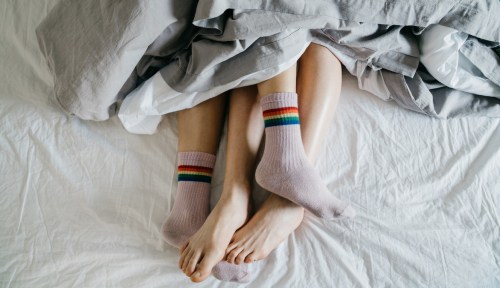When I learned that the National Sleep Foundation credited ASMR videos as an effective method for dozing off, I felt annoyed. Why? Because it’s such an obvious truth that I could have detailed for the folks over there ages ago. I’ve used ASMR for sleep, and it works. Flawlessly even. But when it comes to my sleep hack go-tos (namely the 4-7-8 technique and lavender lotion), ASMR is the trickiest to talk about. It’s really hard to keep a captive audience after the utterance of “brain orgasm.” But, here goes nothing:
ASMR stands for “autonomous meridian sensory response,” which is fancy speak for “a phenomenon that produces tingles.” Said tingles are a static-y sensation that sort of moves from the scalp to the neck and spine. ASMR videos involve individuals trying to, at least in part, trigger these tingles with a series of sounds and soothing visual stimuli. This could include anything from hair-brushing and tapping on a microphone to scratching a voodoo doll (yep).
Suffice it to say that even though ASMR’s gone mainstream—even Cardi B does it, kids!—many people instantly assume it’s a sexual thing when I talk about it (maybe I should stop saying “brain orgasm?”). Alas, it couldn’t be further; the story of how I started using ASMR for sleep is simply personal and pure.
My meet-cute story with ASMR for sleep
Years ago, I stumbled upon YouTuber AlbinWonderland, a sugar-floss-haired delight who makes me feel like I’m in episode of Sailor Moon. In 2012, she created a separate ASMR channel called AlbinWhisperland, and circa 2016 my algorithms led me to her Morticia Addams Does Your Makeup video. Weird mood, but I’ve wanted to be best friends with Morticia Addams since I was 12, so I’m def the target demographic. Still, after the 15-minute video, I was shocked about how soothed I felt. What is this ASMR thing? Down the clickhole I went.
For me, ASMR videos proved transportive, offering sedative-like effects. One of the first that sent me to sleep simply features Alb gently playing with her friend’s hair and saying soft-spoken kind words.
“The things that you do help people. Even if you don’t even know, they are helping people,” she whispers while braiding. “Every time you smile at someone, you make their day a little bit better. Every time you help someone, you improve the world around you. So even in the moments where you feel like maybe you aren’t making a difference, I want you to know that you are.” For the first time in a long time, I could feel some foreign sensation descending upon me: peace of mind.
ASMR may help if you struggle with mental-health conditions
If your sleep troubles converge with anxiety or depression, like mine do, I can’t vouch enough for ASMR. And one small study backs me up by showing that common triggers—whispering, personal attention, crisp sounds, and slow movements—had mood-boosting effects on 80 percent of participants. And 69 percent reported it eased their moderate-to-severe depression symptoms.
That said, ASMR isn’t a bona fide treatment, but rather a supplement that can help with coping. So, please do seek the help of a mental-health professional, and together, agree upon a plan. (Mostly, don’t rely on YouTube.)
So why is ASMR still so fringe?
I’ll probably always have “friends” who side-eye the wide, wondrous world of ASMR, but I do have at least one pal who uses ASMR videos…but keeps it on the DL.
“Yeah, it’s really weird telling someone that the only way I can sleep is to hear a woman gently crinkle a wrapping paper,” this one friend once told me. And I can totally see that. For some, the intimacy is too strange, and the microphone-blowing and cat-petting a liiiiiittle to sensual. But, we live in a world with no less than five listicles out there about how Simba from The Lion King is hot. So ASMR is far from the most deviant thing on the internet.
And, brain orgasms asides, those videos just want me make me feel cozy and cared for. Who wouldn’t want to go to bed with that?
Another thing that might help you fall asleep? Slow-lit. And, sleep FOMO might be the underlying cause of your sleepless nights.
Sign Up for Our Daily Newsletter
Get all the latest in wellness, trends, food, fitness, beauty, and more delivered right to your inbox.
Got it, you've been added to our email list.











